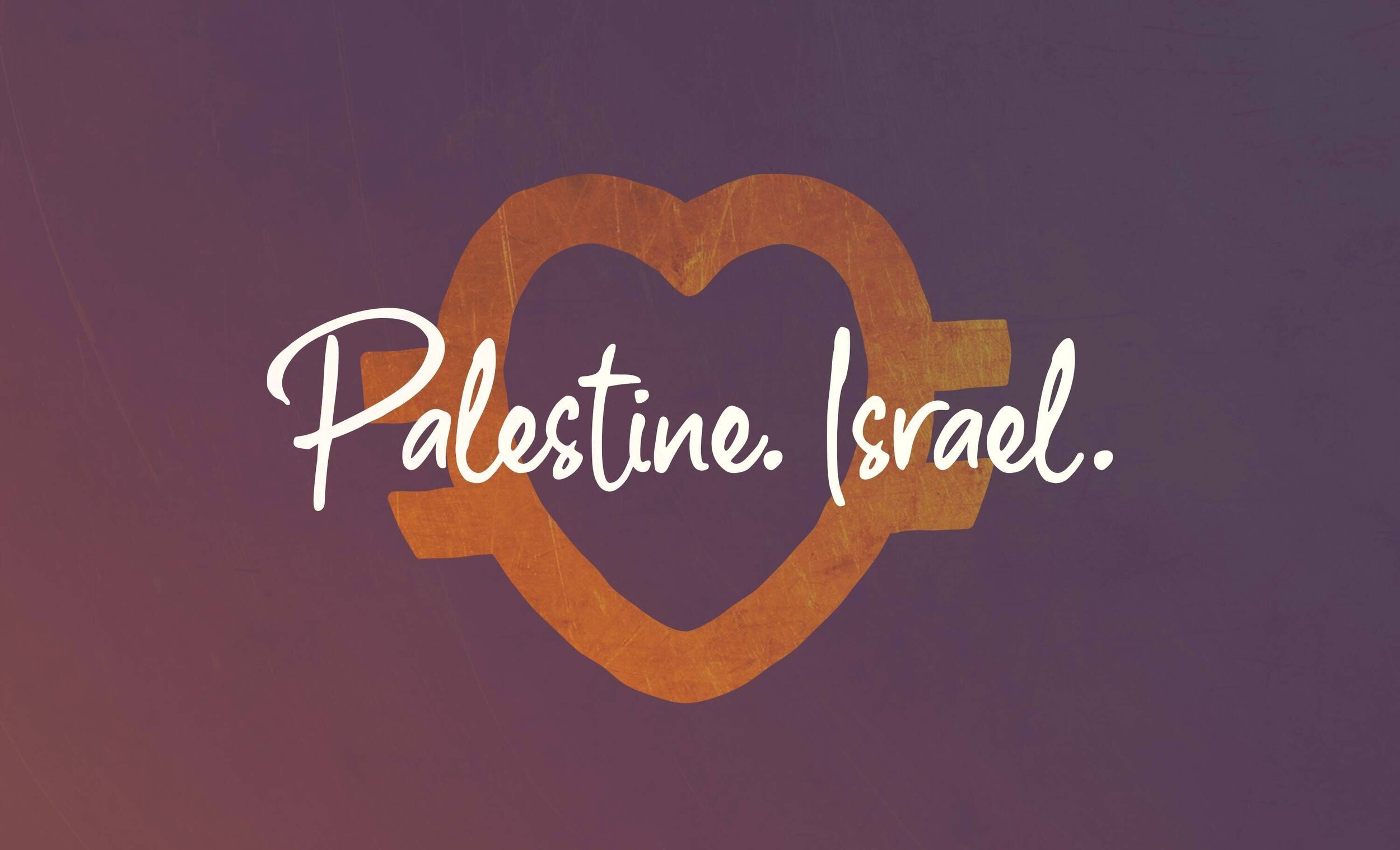Written By Anu Gupta
Israel. Palestine. Reimagine With Me.

Like you, I’ve been immobilized with grief and shock at the violence taking place across the Holy Land, also known as Israel and Palestine. The details of the horrors taking place are already sealed in our collective memory, so I won’t repeat them here. But please know that my heart has been deeply heavy these last few weeks. I am certain you can relate.
Something that’s been made clear to me throughout this most recent crisis of violence is that it is another example of the caste system in action. To the government officials involved, the value of a person’s life depends on where they’re located, what they look like, their name, or to what faith they belong. In this case, differences in caste are being used to justify the taking of human life.
it is another example of the caste system in action
As a high school senior, I was a tour guide at the Museum of Jewish Heritage, A Living Memorial to the Holocaust, and I studied in Israel during the summer of 2002. This time period aligned with the Second Intifada, or the Al-Aqsa Intifada, a Palestinian uprising against Israel. At that time, my teenage mind broached some heavy questions about the conflict occurring around me.
For example: What if the Israeli government, instead of spending billions annually on its military and training its citizens in warfare, spent that money on building schools? Hospitals? Nursing homes? Trains? Daycares? High speed internet within its own and Palestinian territories? What if those resources were put toward active partnerships and collaboration across the border? And what if instead of or in addition to mandatory military service, Israel made it mandatory for all Israeli citizens to be trained in the art of disarmament? What if the government educated its citizens in skills like nonviolent communication, compassion, negotiation, de-escalation, and active listening, tools that make an extraordinary difference in conflict resolution across the globe?
What if the government educated its citizens in skills like nonviolent communication, compassion, negotiation, de-escalation, and active listening
Now that this age-old conflict has once again reared its ugly head, these questions have returned to my mind. They are even more salient thanks to my more thorough understanding of the caste system and how it operates everywhere, ideas that I hadn’t fully considered yet during my time in Israel.
Of course, what’s happening in Israel and Palestine right now is much more than a “conflict.” The level of power between the two sides is very different, and it is the responsibility of the dominant caste — white Jewish Israelis — to initiate change. This is an opportunity for the Israeli authorities to celebrate diversity of thought and ideology, to use this diversity as a strength, and to foster reconciliation between so many groups that have warred for so long. There is so much more listening and learning to do, and it is deeply disappointing that this is not what’s happening.
it is the responsibility of the dominant caste — white Jewish Israelis — to initiate change
It is not outside of the realm of possibility for a solution to be reached. The financial resources are there. The material resources are there. But what is missing is our moral imagination — our ability to dream up something outside the options we’ve been presented. In the solutions most commonly shown in the media, someone always loses out. But what if that weren’t the case?
The biggest blockage to our ability to reimagine is each person’s attachment to a single story, and to imagine that homelands are exclusive to one’s own kind of people. Israel is imagined as for Jews only. Palestine is imagined as for Muslims only. But that is so far from reality. Israelis are Jews, Muslims, Christians, Buddhists and beyond. Palestinians are Muslim, Christian, Druze, atheists and beyond. And that is the truth of who we are as people, how we move about the world, how we truly live. We cannot live on an island of happiness in an ocean of misery. If COVID has taught us anything, it is that we are interdependent, and inextricably connected to one another. This virus doesn’t care what caste we belong to in a society, what religion we profess, or how much money we have. Then why do we care so much? Why do our governments? And what might happen if we imagined something different?
During this tragic and difficult time, I invite us all to imagine what other world might be possible if we only allowed it to exist. Creating this world will require a relentless commitment to the flourishing of the human spirit. We will have to imagine what the world might be like if there was no “other,” but rather, if we were all held in equal regard as human beings. As people, we have the power of imagination. We must use it to imagine new, safe, just futures for ourselves and for all people.
Creating this world will require a relentless commitment to the flourishing of the human spirit.
I keep coming back to the immortal words of John Lennon, whose deeply moving song “Imagine” has inspired generations: “You may say I’m a dreamer, but I’m not the only one / I hope someday you’ll join us, and the world will live as one.”
